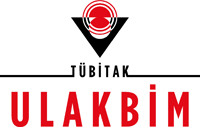THE EFFECT OF IMPLICIT LEADERSHIP ON ORGANIZATIONAL COMMITMENT: A CONGRUENCE BASED RESEARCH IN THE EDUCATION AND HEALTH SECTOR
Keywords:
Implicit leadership, congruence, organizational commitment, education sector, healthcare sectorAbstract
In recent years, there has been a shift in leadership research towards a perspective that focuses on followers rather than leaders within the leadership process, emphasizing the examination of their cognitive processes and perceptions of leadership. Implicit leadership theories (ILTs) express the leader prototype/model in the minds of followers, that is, their assumptions about the qualities and behaviors a leader should have. In this study, the effect of the congruence between followers' implicit leadership theories (ILTS—the leader prototype/model in their minds) and their perceptions of the potential leader's characteristics/behaviors (perceived leadership) on organizational commitment is examined in a Turkish sample during a period of continued effects of the COVID-19 pandemic on the workplace. The study, which involved 558 employees from the education (teachers) and healthcare sectors in Balkesir province in April and May 2022, demonstrates that this congruence has a positive effect on organizational commitment. Additionally, significant findings reveal differences in implicit leadership and organizational commitment between employees in the education (teachers) and healthcare sectors. We have determined that employees in the education sector (teachers) place more importance on the personal morality of an ideal leader than those in the health sector. Furthermore, research reveals that employees in the education sector (teachers) perceive their managers' leadership characteristics as more similar to the leader prototype/model in their minds than those in the health sector. Finally, research reveals that the organizational commitment of employees in the education sector (teachers) surpasses that of employees in the healthcare sector.









